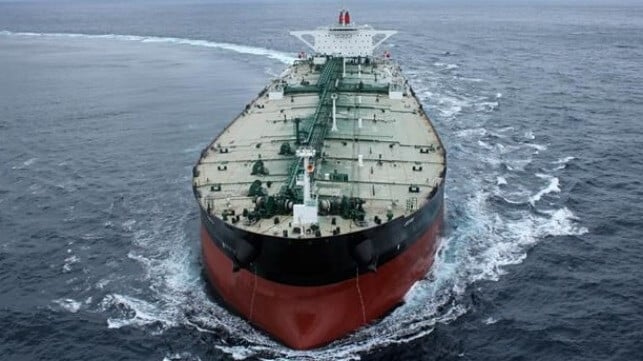U.S. Targets Iran’s Oil and Missile Fuel with “Maximum Pressure Sanctions”

As the Trump administration marked its first 100 days, it also highlighted efforts to continue the maximum pressure sanctions campaign against Iran and its interests. In coordinated announcements, the U.S. State Department announced sanctions on the oil sector while the Treasury Department targeted the network supplying ballistic missile propellant ingredients to Iran’s Islamic Revolutionary Guard Corps.
So far, the sanctions have been coming from the U.S. Department of the Treasury and its Office of Foreign Assets Control, but on Wednesday, April the U.S. State Department announced the oil sector sanctions. It came as State is locked in ongoing negotiations with Iran focusing on the nuclear program and is scheduled to hold a fourth round of talks this weekend.
Secretary of State Marco Rubio said in a press statement that the U.S. is “committed to driving Iran’s illicit oil and petrochemical exports – including exports to China – to zero,” under Donald Trump’s maximum pressure campaign. “So long as Iran attempts to generate oil and petrochemical revenues to fund its destabilizing activities, and support its terrorist activities and proxies, the United States will take steps to hold both Iran and all its partners engaged in sanctions evasion accountable.”
In the latest round of sanctions, the U.S. designated four sellers of Iranian petrochemical products and one buyer that are accused of generating hundreds of millions of dollars in funds for Iran. Four companies based in the UAE (Solvent Organics, Al Seerah Trading, Harold Trading, and Shivanai Organics) were accused of exporting in total approximately $500 million of petrochemical products from Iran. A Turkish-based company (Kimpas) was accused of importing $15 million of petrochemical products and an Iranian cargo surveyor (Keyhan Sanjesh Azma) was also designated for its participation.
State also added two tankers, Eloise (105,709 dwt) and Olia (106,360 dwt) to the sanctions. Eloise built in 2002 is registered in Gabon while the Olia, which was previously designated for its role with Russian oil exports, is being identified in the Equasis database with an unknown flag. It was previously registered in Gabon and before that Panama, Liberia, and the Bahamas. The U.S. also designated UAE-based Vroom Marine as the manager of the two tankers.
The Treasury Department one day earlier on April 29 targeted the network involved in shipping ballistic missile propellant ingredients to Iran. It listed six entities in China and Iran as the network that facilitated the procurement of sodium perchlorate and dioctyl sebacate which is used to produce ammonium perchlorate for solid propellant rocket motors of ballistic missiles. The U.S. highlights that ammonium perchlorate is controlled by the Missile Technology Control Regime (MTCR), a multilateral political understanding among states that seek to limit the proliferation of missiles and missile technology.
